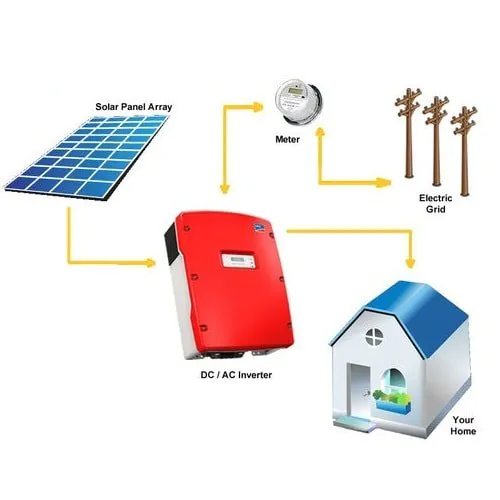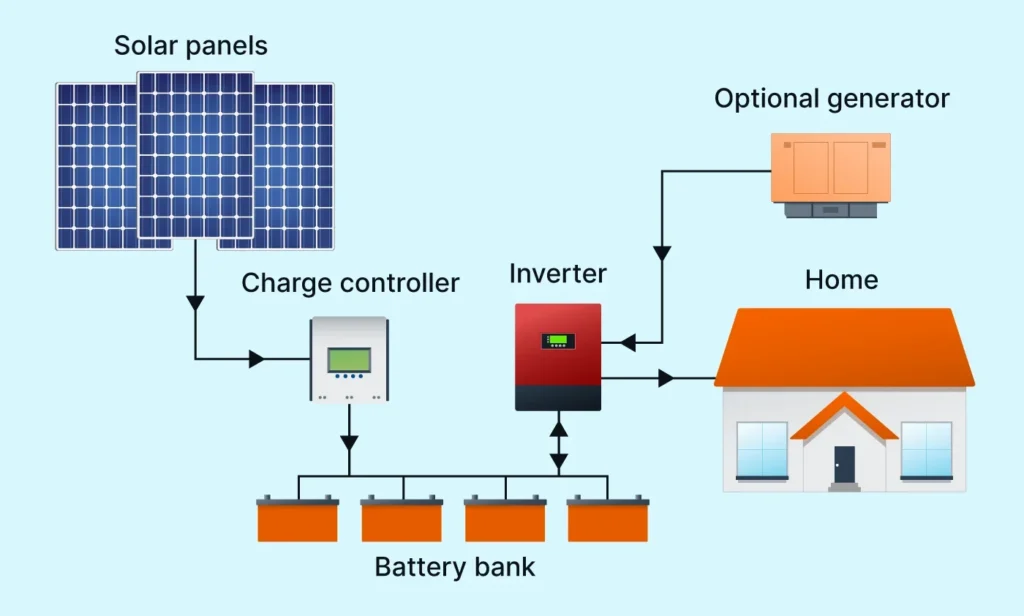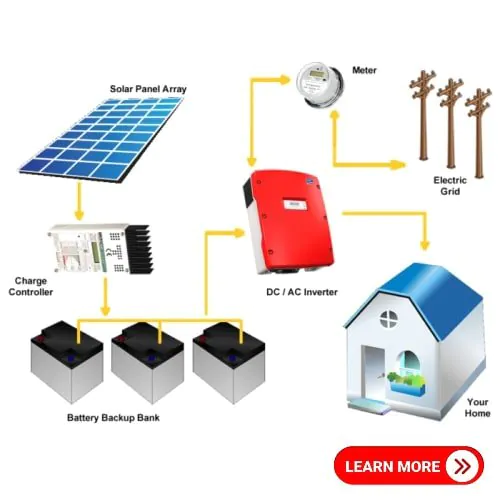Solar Systems

On-Grid Solar
On-grid solar, also known as grid-tied solar, refers to a solar power system that is connected to the electrical grid. In this setup, the solar panels generate electricity, which is then fed into the utility grid. This type of solar installation contrasts with off-grid systems that operate independently without a connection to the grid.

Off-Grid Solar
Off-grid solar refers to a solar power system that operates independently of the electrical grid. Unlike on-grid solar systems, which are connected to the utility grid, off-grid systems are designed to generate and store their own electricity, providing power to a specific location without relying on external sources. These systems are often used in remote areas where grid access is unavailable or impractical. Here are key features and components of off-grid solar systems

Hybrid Solar
Hybrid solar systems combine elements of both on-grid (grid-tied) and off-grid solar systems, providing a versatile and reliable power solution. These systems integrate solar panels with other components like battery storage and sometimes a backup generator to offer electricity in various scenarios. The key components and features of hybrid solar systems include
